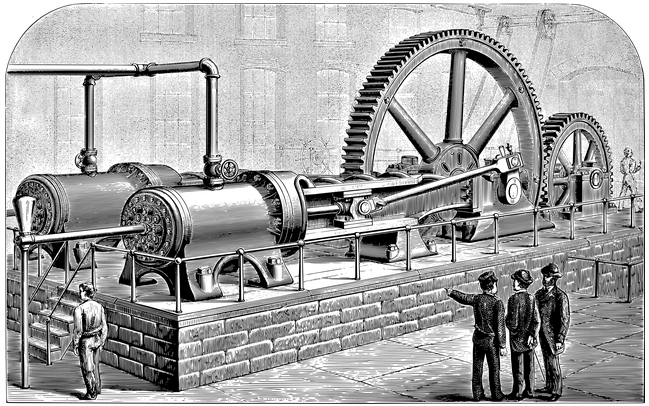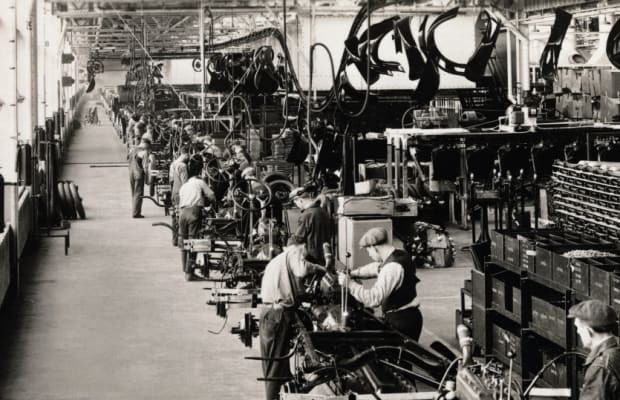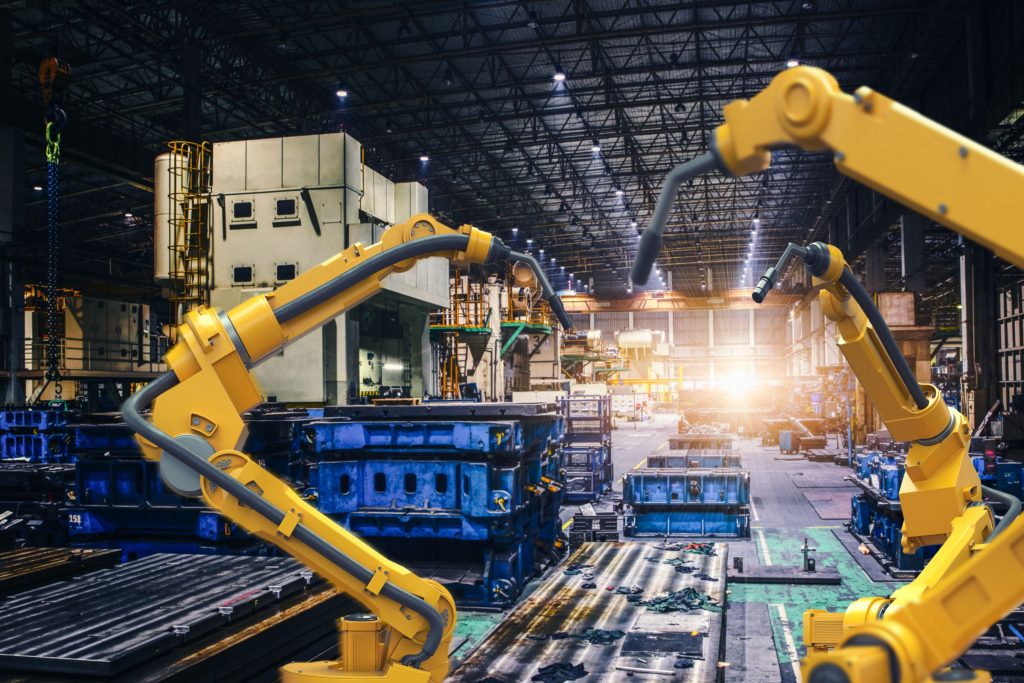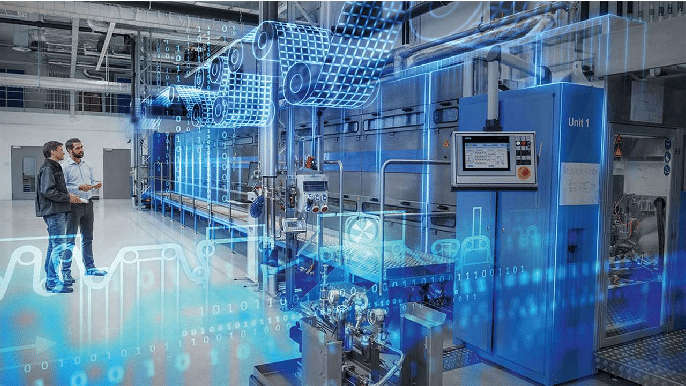Industry 4.0 for precision automotive manufacturing
Last updated on June 19th, 2023
The global Industry 4.0 market is expected to grow from US$65 billion in 2021 to US$166 billion by 2026, reflecting a healthy CAGR of 20.6%. The largest share of that market will likely be held by the industrial sensors segment.
What is Industry 4.0?
There is a lot of talk about Industry 4.0 but many manufacturers still wonder what it really means and how it applies to them. Let’s break it down.
Industry 4.0 is a term that refers to the fourth industrial revolution. Here is what it means to manufacturing and how it evolved:
The First Industrial Revolution: Late 18th Century
The first industrial revolution laid the foundation for mass production, by introducing steam power and mechanization to manufacturing.

The Second Industrial Revolution: 19th Century
A century later, electricity and assembly lines were introduced, along with communications via telegraph and telephone, bringing mass production and some automation to manufacturing.

The Third Industrial Revolution: Mid 20th Century
In the middle of the 20th century, computers and advances in data analytics and telecommunications triggered great leaps in manufacturing processes. Factory digitization, with the introduction of sensor and control technologies, helped collect and share data and automate some processes.

The Fourth Industrial Revolution (Industry 4.0): Today
Driven by data and advanced technologies, the fourth industrial revolution, or Industry 4.0, is bringing increases in automation, along with the rollout of smart machines. Technologies such as cyber-physical systems, virtual and augmented reality, the cloud, the Internet of Things (IOT), artificial intelligence (AI), and machine learning (ML) are helping today’s manufacturers improve production processes and increase product quality in smart factories driven by informed data. There is already talk of Industry 5.0, which is expected to transform modern manufacturing by optimizing human-machine collaborations as technologies like AI, robotics, cobotics, and smart machines advance. But let’s not get ahead of ourselves.
There is already talk of Industry 5.0, which is expected to transform modern manufacturing by optimizing human-machine collaborations as technologies like AI, robotics, cobotics, and smart machines advance. But let’s not get ahead of ourselves.
How Industry 4.0 Works
While talk of the fourth industrial revolution usually centers around remarkable new technologies, data is what really makes it tick. In Industry 4.0, manufacturers rely on the collection, exchange, and analysis of data to automate and improve processes, predict problems before they occur, and improve products. Today, the mountains of current and historical data many manufacturers have been sitting on can be analyzed to identify patterns and deliver actionable insights faster than ever before.
For precision manufacturers such as automakers, Industry 4.0 technologies can enable them to leverage deep data insights to make continuous product improvements, troubleshoot issues in real time, and streamline operations. In fact, everything along the supply chain can be improved – from prototype production to final distribution – as a result of connected systems proactively leveraging and sharing insights from data.
Using ML/AI models, precision manufacturers can predict anomalies and discover previously hidden correlations and patterns in their data. And it isn’t just data from the factory floor. Powerful ML/AI solutions can enable manufacturers to digest and exploit all relevant data, from all business units and even 3rd-party partners.
Putting an end to siloed data that is often isolated by business unit, the best ML/AI solutions collect and compile all the data into one trusted data source, a single source of truth, to inform all stakeholders. From that single source of truth, the data can also be used to create digital twins, virtual models that provide a holistic view of the entire production process and the physical parts being produced, to deliver real-time operational status and product updates. Predictive ML-based digital twins can detect any anomalies and suggest the best course of action to fix and avoid them in future.

Getting the Most from Your Data
Most precision manufacturers are busy trying to gain actionable insights from their complex product data, and there are simple ways to employ Industry 4.0 technologies to help. For example, our LinePulse solution helps manufacturers of automotive and off-highway vehicles build better parts more efficiently, by applying ML/AI to product and production data.
By aggregating and analyzing all your relevant data into a single source of truth, LinePulse can provide you with a real-time view across the manufacturing line and provide insights to make the right decisions fast.
Are you ready to optimize production, increase product quality, and improve first time through (FTT)? Get in touch.
Share on social: